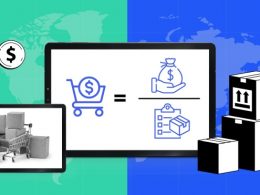In business, one can’t go by intuition alone; every decision needs solid data to back it. That’s where QuickBooks steps in, holding 80% of the U.S. market. QuickBooks introduces complete transparency into the financial health of your business through strong features that include real-time reporting and customizable dashboards. Whether it’s tracking cash flow, spotting profit trends, or keeping tabs on expenses, QuickBooks reports are your secret to smarter and faster decisions, saving businesses time on financial tasks.
In a recent Synder webinar, “How to Leverage QuickBooks Reports for Strategic Business Decisions”, CPA Nicholas Coburn from Strata-G, shared how QuickBooks reports can become a game-changer for business owners. WithHaving more than 19 years of experience, Nicholas showed just how crucial these reports are in making smart, strategic decisions to keep your business on track and growing.
Ready to stay ahead? Let’s plunge into the details!
Key takeaways:
- QuickBooks’ reports give a clear overview of your business’s financial status.
- Custom reports allow you to drill down and focus on what really matters to your business.
- QuickBooks reports help avoid tax season stress and prevent financial shortfalls by tracking the flow of cash.
Contents:
Types of QuickBooks reports
Being the owner of a business, it’s very important to be abreast of your company’s financial health—and QuickBooks makes it easier by providing a suite of reports designed to give you valuable insights without the headache. Following is a quick breakdown of the key reports that will help you stay ahead of your financials:
Financial reports
- P&L: This would be your company’s financial scorecard. It details your income, expenses, and net profit within a given time period, making it pretty easy to observe whether your business is in the plus or minus.
- Balance sheet: This is a report showing an instantaneous value of your assets, liabilities, and equity, hence giving a clear view of the financial stability of your company.
- Cash flow statement: Cash is king, and this report shows the inflow and outflow of money that’ll help you manage your liquidity to enable you to plan future investments.
Sales and customer reports
- Sales by customer summary: See which customers drive your sales and how much revenue each one brings in.
- Sales by item summary: Understand which products or services drive sales.
- Customer balance summary: Realize how much your customer owes you to keep up with the collections.
- Accounts receivable aging summary: Give a report on what bills are overdue and how long they have been. This makes it easier for you to manage collections.
Expense and vendor reports
- Expenses by vendor summary: Truly understand where your money is going by tracking your expenses against your vendors.
- Unpaid bills report: Stay on top of your accounts payable with a report that shows you which bills remain unpaid.
- Accounts payable aging summary: This report organizes your outstanding bills by the length of time they have been open. This helps you avoid unnecessary late fees.
Tax reports
- Sales tax liability report: Get no surprise from how much sales tax you owe the authorities.
- Tax summary report: This gives you a summary of all the tax-related transactions that have taken place so that whenever tax seasons come, you’re ready.
Inventory reports (for product-based businesses)
- Inventory valuation summary: Know your current stock value to make informed purchasing and pricing decisions.
- Inventory stock status by item: Keep track of how much stock you have and reorder points to avoid running out of any inventory item or overstocking.
Employee and payroll reports
- Payroll summary: Realize what your payroll expenses consist of, including wages, taxes, and deductions.
- Employee details report: This report provides further detail on payroll information for each employee on hand, helpful for HR and compliance purposes.
Budgeting and forecasting reports
- Budget vs. actual report: Set up what you had planned to spend compared against what you actually spent-helping you stay on track financially.
- P&L budget performance: See your business performance versus budget, to make amends where necessary.
Custom reports
- Custom summary report: Customize reports with your choice of data points and filters for the most relevant information.
- Custom transaction detail report: Drill down into transaction-level details to analyze specific financial activities.
Why you can’t afford to ignore QuickBooks reports
If you’re not using the QuickBooks reports on a regular basis, then you surely are losing one of the best tools at your disposal. As Nicholas explained, “QuickBooks gives you a real-time look at how your business is doing—and that’s something every business owner should be tapping into.” The reports aren’t just some numbers on the screen but actually let you know exactly where your business stands, where it’s headed, and what it needs to change in order to stay ahead.
“Making decisions based on outdated or incomplete financial data is like flying blind.”
Nicholas Coburn, CPA, Strata-G
And now let’s break down the particular reasons why using QuickBooks reports is a must.
1. Customizing reports: Only insights that matter
One of the most powerful features of QuickBooks includes the ability to generate custom reports. By customizing reports to track projects, locations, or specific departments, business owners have a clearer picture of which parts of their business are thriving and which might need a little more attention.
“You might think your biggest project is your most profitable, but when you break it down, you realize that another area is actually performing better,” Nicholas explained.
He also revealed that this feature may save business owners a lot of time and hassle by filtering in the data they actually need. “Instead of wasting time pulling together reports manually, you can customize everything in QuickBooks to show the exact information you need,” he said.
Case study: How custom reports made life easier for a Youth Theater Program
Background
The Youth Theater Program is a nonprofit organization that helps kids develop their acting skills by putting on multiple shows every year. With money coming in from ticket sales, donations, and grants, it became a lot of work to keep track of the finances-especially the ticket sales. Their team had to manually create a report for each show, which really took up time that could have been utilized elsewhere.
The challenge
As the Theater Program grew, the volume did too. They found themselves spending way too much time pulling together ticket sales reports, and it was just becoming a pain. They needed a smarter and easier way to handle this-one which would give them the data they needed without all of the manual work.
That’s when Nicholas Coburn, CPA, stepped in; he knew the process should be automated to save the team hours in order to help make better decisions without all the stress.
The solution
Nicholoas set up a flow specific to tracking ticket sales. “We created a custom report that automatically refreshed every month, so the team didn’t have to run the same report over and over,” he related during the webinar.
This custom report provided them with important data, such as:
- How many tickets were sold for each show.
- Total ticket sales revenue.
- Easy comparisons between shows and seasons to spot trends.
Now all they had to do was hit the button, and there it was-most up-to-date data, no more periodic reporting.
Key benefits
- Big time-saver: The custom report took away the need for manual entry of data, freeing them up to actually run the program.
- Instant, real-time data: No more waiting. They had ticket sales data ready at their fingertips, helping them make quick decisions about pricing and promotions.
- Better decision-making: With a clear insight into which shows were pulling the best, they could move confidently into planning future productions, focusing on what worked.
- Fewer mistakes: Automating processes meant fewer human errors, so they could trust the numbers.
- More transparency: The custom reports made it easy to show donors and stakeholders exactly how ticket sales were contributing to the program success.
The results
In fact, the switch to QuickBooks’ custom reports proved nothing less than a transformative step for the Youth Theater Program. Greater efficiency due to automated data in real time allowed the team more resources to make smarter decisions and provided an overall better picture of their finances. But more importantly, they were now free to focus more on what truly mattered: putting on great performances for their audience.
The custom report gave the team exactly what they needed—accurate data at their fingertips, without the hassle of manual entry. It was a real game-changer for them.
Takeaways for other organizations
- You save time and avoid mistakes by automating your reports.
- The results are better decisions made faster because real-time data informs these decisions.
- Custom reports give you exactly what you need to know so that you can concentrate on growing and succeeding.
QuickBooks does custom reports that can offer so much more than just simple numbers, supplying revolutionary insight into resurfacing how you manage your business or organization.
2. Keeping financials under control: A current snapshot of your financial health
It’s of most importance that you use QuickBooks’ P&L report and balance sheet report to monitor your business’s financial health. “Your P&L shows your revenue, costs, and expenses at a glance, but you can’t stop there. You need to compare it month-over-month or year-over-year to spot trends or issues before they get out of control,” Nicholas said.
On the other hand, the balance sheet summary represents the big picture of what your business has and owes.
“If you’re not regularly checking your balance sheet, you might be missing warning signs like high debt or low liquidity.“
Nicholas Coburn, CPA, Strata-G
These financial reports are key in identifying various potential flags so that your business can stay on solid ground.
And there’s another important point that Nicholas related to: “If your revenue is going up but your profits are shrinking, it’s time to take a closer look. You could have rising costs that are eating away at your bottom line, and that’s something you want to catch early.“
3. Managing your cash flow: A real-time pulse of your business’s finances
If you’re not regularly looking at your cash flow statement, you’re playing with fire. Cash flow tells you whether your business is generating enough cash to cover its bills. If you’re constantly running low on cash, even if you’re profitable on paper, that’s a problem.
Negative cash flow is not always an evil thing—particularly for startups or businesses making major investments—but it’s critical to understand why it’s occurring. “You could be burning cash because you’re expanding, which is great, or you could be losing money because you’re overspending. Either way, you need to know.“
Another big tip? Don’t pay your bills any faster than your customers are paying you. Make sure you’re keeping cash flow balanced. If you’re shelling out money too fast, you could end up in a tight spot.
4. Staying on track: Keeping QuickBooks updated is non-negotiable
As Nicholas said, you can’t expect to make good decisions if you’re not keeping QuickBooks current with accurate, timely data. If you’re making decisions based on old or incomplete information, you’re setting yourself up for failure.
You should at least once a month reconcile your accounts to find any discrepancies early: “Waiting until the end of the year to reconcile is a recipe for disaster. You’ll forget transactions, miss errors, and spend way more time and money trying to clean it all up later.“
By staying on top of your bookkeeping, you’re not just preventing a headache later on; you’re equipping yourself to make wiser and quicker decisions. You’ll catch mistakes early and have a clear picture of your business’s financial health at all times.
5. Avoiding tax season stress: Accuracy is everything
With tax season looming, we can’t talk down the importance of up-to-date financial data inside QuickBooks. No one wants to deal with a tax audit, and the best way to avoid that is by making sure your books are accurate and complete.
QuickBooks keeps all your transactions organized and in the right fiscal period, so you’re compliant. “If your financial data is a mess, tax season is going to be expensive and stressful. But if you’ve kept everything up to date, it’s smooth sailing,” Nicholas pointed out.
Power up your QuickBooks with Synder: Automate and elevate your business decisions
Powerful by itself, QuickBooks becomes unbeatable with Synder on the team: it amplifies your business decisions tenfold, syncs multi-channel sales, automatizes bookkeeping, and provides you with correct uptodate data, sans all the tedious manual entry.
“If you’re selling on Shopify, Amazon, Etsy, or multiple channels, Synder ensures every transaction is accurately captured in QuickBooks—no double entries, no missed data points.”
Nicholas Coburn, CPA, Strata-G
This is how Synder makes a difference in business decision-making for good:
1. Real-time insight into finance
When Synder automatically syncs and categorizes your sales data in QuickBooks, you’ll have up-to-the-minute insight into your financials. Being able to access the most current information in a platform helps make quicker, informed decisions more rapidly. “You can’t make good business decisions with stale data,” Coburn noted. “Synder ensures your QuickBooks is always up to date, no matter where the sale happens.”
2. Tracking of multi-channel sales
It all can get quite messy when you have to manage sales across different platforms. Synder collates all that information in one place to give you an extremely clear view of the performance of each channel. This integration will allow one to create custom reports showing sales trends, expenses, and profitability across multiple platforms. Nicholas explained, “By integrating with QuickBooks, Synder lets you track revenue from all your sales channels in one dashboard, so you can quickly spot trends and adjust your strategy.”
3. Error-free bookkeeping
Manual entry is time-consuming and prone to errors. Synder automates this task, reducing the likelihood of costly mistakes. “Nothing derails business decisions like inaccurate financial data,” Coburn said. “Synder takes care of the heavy lifting by syncing your transactions automatically, so you know your books are clean and accurate.”
4. Simplified cash flow management
Managing multi-platform cash flow is one of the most complex duties any business will have to face. Synder makes sure that your QuickBooks cash flow statement is updated for each and every transaction, giving a true sense of liquidity in real time. “Cash flow is the lifeline of any business,” Coburn stressed. “Synder helps you track every dollar, so you can plan for upcoming expenses or investments with confidence.”
5. Tax compliance made easy
Tax season is a headache, especially since your sales data is scattered across different platforms. Synder integrates everything into QuickBooks, making sure your data is categorized correctly for taxes.
“When you use Synder, it automates your sales tax tracking across different states and platforms. Come tax season, your QuickBooks data is already organized, making filing easier and more accurate.”
Nicholas Coburn, CPA, Strata-G
Ready to make your financial management easier? Test Synder with a 15-day free trial or book a spot at our Weekly Public Demo to learn how Synder can meet your particular business needs.
Wrap-up: Make QuickBooks work for you
One thing that really should be clear is that QuickBooks isn’t all about mapping your expenses; rather, it’s a powerful means of changing how you operate your business. By leveraging reports, customizing them, and keeping them up to date, you’re not only going to keep the books for your business but also make smarter, faster decisions that drive success.
QuickBooks gives you the data you need to keep your business moving in the right direction. It’s not just about balancing your books—it’s about using that information to make decisions that keep your business healthy and growing.
Synder reinforces this power by automatically syncing data from multiple platforms and providing real-time insight into your finances without you having to lift a finger. It ensures that the data in QuickBooks is correct and current at any moment in time, thus allowing you to stay ahead of your business performance.
The key takeaway? Stay on top of your QuickBooks reports, and don’t wait until it’s too late to make the changes your business needs to thrive. With the right strategy and a little help from Synder, QuickBooks can be your secret weapon to success.







Excellent article! The power of Quickbooks reports seems helpful for my own business tax services UK.
Thanks for your feedback! We’re happy that you found this article informative and useful!